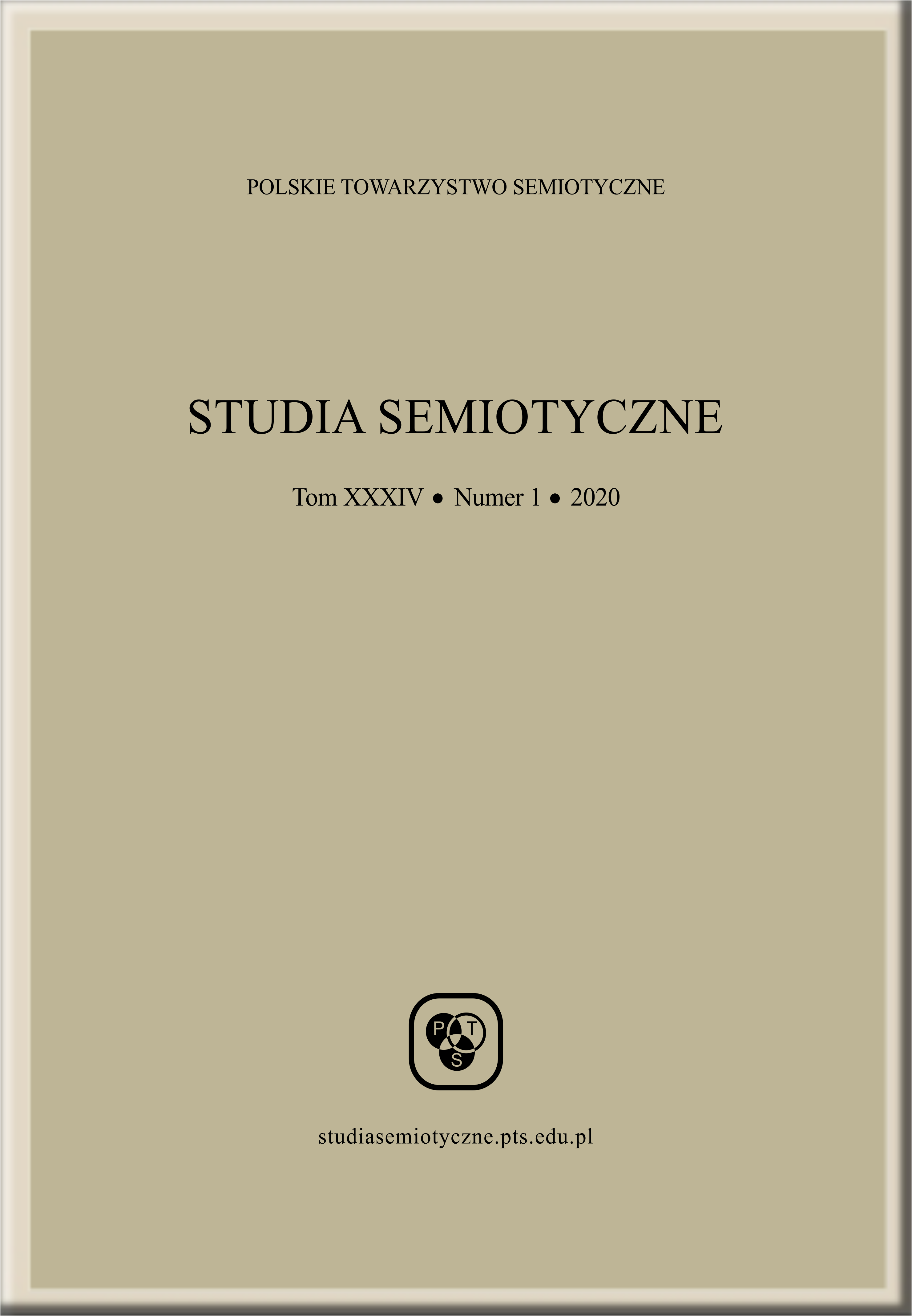Abstrakt
DOI: http://doi.org/10.26333/sts.xxxiv1.06
Georg Kreisel (1972) suggested various ways out of the Gödel incompleteness theorems. His remarks on ways out were somewhat parenthetical, and suggestive. He did not develop them in subsequent papers. One aim of this paper is not to develop those remarks, but to show how the basic idea that they express can be used to reason about the Lucas-Penrose-Putnam arguments that human minds are not (entirely) finitary computational machines. Another aim is to show how one of Putnam’s two anti-functionalist arguments (that use the Gödel incompleteness theorems) avoids the logical error in the Lucas-Penrose arguments, extends those arguments, but succumbs to an absurdity. A third aim is to provide a categorization of the Lucas-Penrose-Putnam anti-functionalist arguments.
Bibliografia
Audi, R. (1988). Belief, Justification, and Knowledge. Belmont, CA: Wadsworth Publishing Company.
Boolos, G. (2001). Introductory Note to ‘Some Basic Theorems on the Foundations of Mathematics and Their Implications’. In: S. Feferman et al. (Eds.), Collected Works, Volume 3: Unpublished Essays and Lectures (pp. 290–307). New York: Oxford University Press.
Brouwer, L. E. J. (1967). On the Domains of Definition of Functions. In J. van Heijenoort (Ed.), From Frege to Gödel (pp. 446–463). Cambridge, Mass.: Harvard University Press.
Buechner, J. (2007). Gödel, Putnam, and Functionalism: A New Reading of ‘Representation and Reality’. Cambridge: MIT Press
Buechner, J. (2010). Are the Gödel Incompleteness Theorems Limitative Results for the Neurosciences? J Biol Phys, 36, 23–44.
Buechner, J., Tavani, H. (2011). Trust and Multi-Agent Systems: Applying the “Diffuse, Default Model” of Trust to Experiments Involving Artificial Agents. Ethics and Information Technology, 13, 39–51.
Carnap, R. (1952). The Continuum of Inductive Methods. Chicago: University of Chicago Press.
Carnap, R. (1962). Logical Foundations of Probability (2nd ed.). Chicago: University of Chicago Press.
Church, A. (1956). Introduction to Mathematical Logic (vol. 1). Princeton: Princeton University Press.
Feferman, S. (1960). Axiomatization of Metamathematics in a General Setting. Fundamenta Mathematicae, 49, 35–92.
Gödel, K. (1990). On a Hitherto Unutilized Extension of the Finitary Standpoint. In: S. Feferman et al. (Eds.), Collected Works, Volume II: Publications 1938–1974 (pp. 241–252). New York: Oxford University Press.
Gödel, K. (1995). Some Basic Theorems on the Foundations of Mathematics and Their Implications. In: S. Feferman et al. (Eds.), Collected Works, Volume III: Unpublished Essays and Lectures (pp. 304–323). New York: Oxford University Press.
Kaplan, D., Montague, R. (1960). A Paradox Regained? Notre Dame Journal of Formal Logic, 1, 79–90.
Kreisel, G., Sacks, G. (1965). Metarecursive Sets. Journal of Symbolic Logic, 30, 318–338.
Kreisel, G. (1965). Mathematical Logic. In: T. L. Saaty (Ed.), Lectures on Modern Mathematics (vol. 3, pp. 95–195). New York: Wiley.
Kreisel, G. (1967). Mathematical Logic: What Has It Done for the Philosophy of Mathematics? In: R. Schoenmann (Ed.), Bertrand Russell: Philosopher of the Century (pp. 201–272). London: George Allen & Unwin.
Kreisel, G. (1970). Church’s Thesis: A Kind of Reducibility Axiom for Constructive Mathematics. In: A. Kino, J. Myhill, R. Vesley, (Eds.), Intuitionism and Proof Theory (pp. 121–150). Amsterdam: North-Holland.
Kreisel, G. (1972). Which Number Theoretic Problems Can Be Solved in Recursive Progressions on Π(1,1) Paths Through O? Journal of Symbolic Logic, 37, 311–334.
Lehrer, K. (1990). Theory of Knowledge. Boulder, Colorado: Westview Publishing Company.
Lewis, D. (1969). Lucas Against Mechanism. Philosophy, 44, 231–233.
Lewis, D. (1979). Lucas Against Mechanism II. Canadian Journal of Philosophy, 4, 373–376.
Lucas, J. (1961). Minds, Machines and Gödel. Philosophy, 36, 112–127.
Lucas, J. (1970). Mechanism: A Rejoinder. Philosophy, 45, 149–151.
Marr, D. (2010). Vision: A Computational Investigation Into the Human Representation and Processing of Visual Information. Cambridge, MA: MIT Press.
Montague, R. (1963). Syntactical Treatments of Modality, with Corollaries on Reflection Principles and Finite Axiomatizabiity. Acta Philosophica Fennica, 16, 153–167.
Penrose, R. (1999). The Emperor’s New Mind, with a New Preface by the Author. New York: Oxford University Press.
Penrose, R. (1994). Shadows of the Mind: A Search for the Missing Science of Consciousness. New York: Oxford University Press.
Penrose, R. (2016). On Attempting to Model the Mathematical Mind. In: S. B. Cooper (Ed.), The Once and Future Turing (pp. 361–378). New York: Cambridge University Press.
Pollock, J. Cruz, J. (1999). Contemporary Theories of Knowledge (2nd edition). Lanham, Maryland: Rowman and Littlefield.
Putnam, H. (1988). Representation and Reality. Cambridge, MA: MIT Press.
Putnam, H. (1994a). Words and Life. Cambridge, MA: Harvard University Press.
Putnam, H. (1994b). Reflexive Reflections. In: H. Putnam, Words and Life (pp. 416–427). Cambridge, MA: Harvard University Press.
Putnam, H. (1995). Review of Roger Penrose’s Shadows of the Mind. Bulletin of the American Mathematical Society, 32, 370–373.
Salmon, N. (2001). The Limits of Human Mathematics. Philosophical Perspectives, 15, 93–117.
Tarski, A. (1983). The Concept of Truth in Formalized Languages. In: A. Tarski, Logic, Semantics, Metamathematics (2nd edition, pp. 152–278). Indianapolis, Indiana: Hackett Publishing Company.
Thomason, R. (1980). A Note on Syntactical Treatments of Modality. Synthese, 44, 391–395.
Thomason, R. (1989). Motivating Ramified Type Theory. In G. Chierchia, B. H. Partee, R. Turner (Eds.), Properties, Types and Meaning, Volume 1: Foundational Issues (pp. 47–62). Norwell, MA: Kluwer.
Turing, A. (1939). Systems of Logic Based on Ordinals. Proceedings of the London Mathematical Society, 45, 161–228.
van Atten, M. (2018). The Creating Subject, the Brouwer-Kripke Schema, and Infinite Proofs. Indagationes Mathematicae, 29, 1565–1636.
von Neumann, J. (1969). Tribute to Dr. Gödel. In: J. J. Bulloff, T. C. Holyoke, S. W. Hahn (Eds.), Foundations of Mathematics: Symposium Papers Commemorating the Sixtieth Birthday of Kurt Gödel (pp. ix–x). Berlin: Springer-Verlag.
Wigderson, A. (2019). Mathematics + Computation. Princeton, NJ: Princeton University Press.


